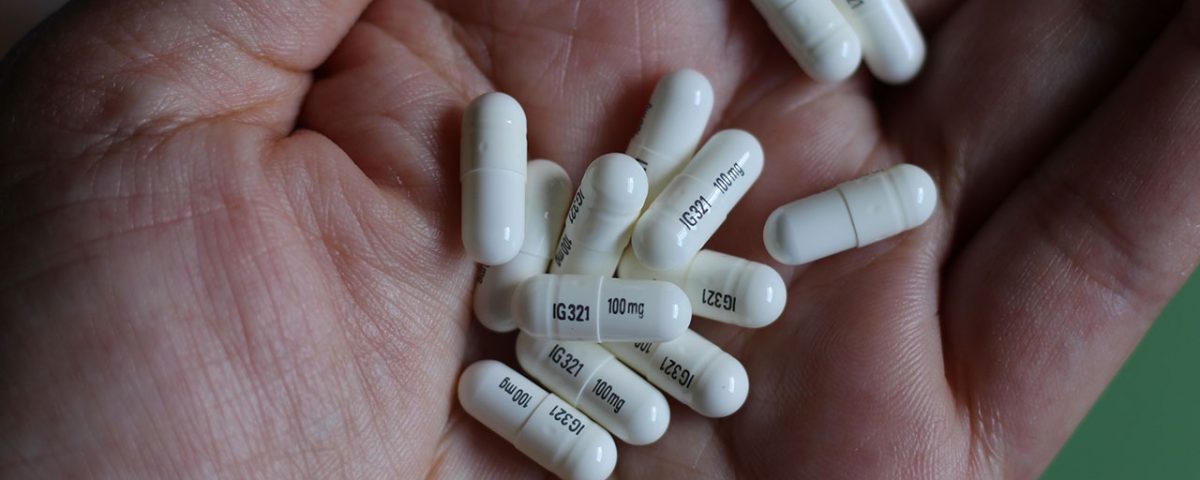Can Gabapentin Cause Serotonin Syndrome?
Gabapentin is an anticonvulsant and nerve pain medication prescribed to patients with seizure disorders like epilepsy or pain caused by the shingles virus. Common brand names for gabapentin include Gralise, Horizant, Neuraptine, and Neurontin. This drug works by stimulating the release of neurotransmitters in the brain, specifically GABA and serotonin. Usually, drugs that affect serotonin levels come with the risk of producing serotonin syndrome. But can gabapentin cause serotonin syndrome? If so, what happens?
What Is Serotonin Syndrome?
Serotonin syndrome (SS) is a potentially life-threatening condition characterized by high levels of a chemical called serotonin in the brain and body. Serotonin is a neurotransmitter that the body produces naturally to help nerve cells and the brain function.
Serotonin is a key hormone in stabilizing our mood, feelings of well-being, and happiness. It impacts the entire body, allowing brain cells to communicate with each other, and it contributes to sleeping, eating, and digestion.
However, too much of something is never a good thing, and the same can be said about having too much serotonin in the body. Serotonin syndrome can affect the functions and regions of the body in which serotonin plays a useful role when controlled.
As a result, a person with this condition may experience symptoms that may range from mild to severe, such as shivering and diarrhea to muscle stiffness, fever, and seizures. If not treated properly, the condition can worsen and even become fatal.
Link Between Gabapentin and Serotonin Syndrome
Serotonin syndrome is often caused by taking high doses of drugs that increase serotonin levels for long periods. However, people who take their prescription medications as directed are also at risk of developing this condition.
Research has indicated that gabapentin can cause serotonin syndrome, especially when taken with other drugs like tramadol. One study found that a 66-year old man who took a combination of tramadol and gabapentin after spinal surgery experienced serotonin syndrome.1
While receiving 100 milligrams (mg) of tramadol once a day and 300 mg of gabapentin three times a day, the man became confused, aggressive, irritable, and agitated during his stay. He even became frustrated with his wife and children.1
In an attempt to alleviate his symptoms, he was prescribed haloperidol and quetiapine, which only ended up worsening his condition. As a result, doctors slowly reduced his doses of tramadol and gabapentin. Within a few hours, the man was stable, and his symptoms improved.
Another study on a 44-year-old female patient who was taking acetaminophen-hydrocodone (5–300 mg) 1 tablet every 6 hours, citalopram 40 mg daily, clonazepam 1 mg 2 times a day, gabapentin 300 mg 3 times a day, lisinopril 5 mg daily, and tramadol 100 mg every 6 hours (as needed at home) experienced severe serotonin syndrome. As you can see, the drug with the highest dosage on this list was gabapentin.2
Another 41-year-old woman was prescribed amitriptyline 50 mg daily, carisoprodol 350 mg three times daily, cetirizine 10 mg daily, cyclobenzaprine 5–10 mg at bedtime, duloxetine 120 mg at bedtime, gabapentin 800 mg three times daily, and tramadol 50 mg four times daily also experienced serotonin syndrome, according to another study.3 These medications were added gradually to her regimen, and the longer she took them, the worse her symptoms became.
Overall, the woman experienced symptoms including dry mouth, worsening of her chronic neck pain, difficulty sleeping, hand tremors, anxiety, akathisia (constant twitchy feeling), hyperreflexia (overactive or over-responsive reflexes), and clonus (involuntary and rhythmic muscle contractions). Eventually, she was diagnosed with serotonin syndrome, and her medications were changed.3
In these cases, it’s often easy to overlook the earlier symptoms of serotonin syndrome because they mimic common symptoms that one might experience when taking pain killers, like dry mouth. However, early detection of this condition is crucial to recovery.
The mortality rate of serotonin syndrome ranges from 2% to 12%. Not only is early detection important, but physicians should always be careful when prescribing multiple medications that may produce this negative reaction.
Furthermore, whether you’re prescribed one or multiple medications, always ask your doctor about side effects and other options for treatment. Addiction and overdose are also risks of taking one or multiple prescription drugs, so always be sure to only take any medications as directed.
Can Serotonin Syndrome Cause Long-Term Damage?
Fortunately, there are no long-term symptoms of serotonin syndrome to worry about. Depending on the dosages of the medications that the person was taking, symptoms may take either a few days to a few weeks to go away.
However, it’s not the long-term problems that people should worry about when it comes to this syndrome. Serotonin syndrome can quickly become life-threatening if it isn’t detected and treated early enough.
Fortunately, in most cases, simply reducing or ceasing the administration of certain medications - such as gabapentin and tramadol – can alleviate serotonin syndrome symptoms completely. However, because this condition can also be caused by antidepressants, adjusting medications for someone suffering from mental illness to alleviate serotonin syndrome can produce other problems, so it’s crucial to always speak to your doctor about changing your dosages or your medications.
How to Know if You Have Serotonin Syndrome
As we mentioned, early detection of serotonin syndrome is crucial. These symptoms usually start mild and may progress as time passes.
If you’re taking gabapentin or other medications that impact serotonin levels, here are some signs and symptoms of serotonin syndrome to look out for:
- Dilated pupils
- Confusion
- Fast heart rate
- High blood pressure
- Agitation or restlessness
- Twitching muscles
- Muscle stiffness
- Excessive sweating
- Diarrhea
- Headache
- Shivering
- Goosebumps
Severe symptoms of serotonin syndrome include:
- High fever
- Irregular heartbeat
- Seizures
- Loss of consciousness
If you suspect that you or a loved one has serotonin syndrome after starting a new medication or increasing the dose of a medication, call your doctor immediately or seek medical attention.
Help for Prescription Drug Abuse
Not only can gabapentin cause serotonin syndrome when taken as directed by a doctor, but misusing this drug can also increase your risk. Gabapentin abuse includes taking it with other medications (when not directed to do so by a doctor), mixing gabapentin with alcohol, or taking higher doses than directed.
Gabapentin addiction is also a possible risk of misusing this medication, a condition that can lead to memory problems, impaired cognitive and nerve function, mental illness, as well as relationship problems, and financial issues. If this sounds like you, then this is your sign to get help.
Banyan Treatment Centers in Pompano offers prescription drug addiction treatment that includes medically assisted detox and therapy to address the physical, mental, and social repercussions of drug abuse. We offer different levels of substance abuse treatment, ranging from inpatient to outpatient options, to ensure that every person that walks through our doors has what they need for recovery.
To learn how our addiction and mental health treatment in Pompano can help, call Banyan today at 888-280-4763.
Related Reading:
Does Gabapentin Affect Memory?
Can You Take Gabapentin With Oxycodone?
Sources:









